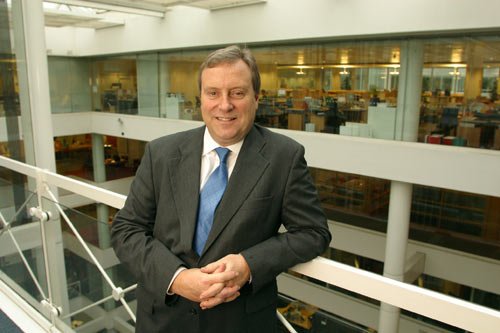A lesson from Sharia Banking
Published by Gbaf News
Posted on March 8, 2013
5 min readLast updated: January 22, 2026

Published by Gbaf News
Posted on March 8, 2013
5 min readLast updated: January 22, 2026

 Islamic banking is a growing force in the industry with many non-Muslims increasingly attracted to its ethical underpinnings. Islamic banking is built on the principle of risk-sharing, rather than the risk-transfer that we see in conventional lending.
Islamic banking is a growing force in the industry with many non-Muslims increasingly attracted to its ethical underpinnings. Islamic banking is built on the principle of risk-sharing, rather than the risk-transfer that we see in conventional lending.
To ensure that these principles are upheld, Islamic banks have Sharia advisers, who report to a ‘Sharia Committee’ made up of Islamic scholars. They examine the activities of the bank and each of its more complex deals, to assess whether they comply with the ethical standards of Islamic teaching. This Sharia review is in addition to the compliance, risk and audit reviews that are part of western banking. Its importance is underlined by Mohammed Abdul malik the CEO of Elaf Bank, one of Bahrain’s leading Sharia banks, who emphasised “The Sharia Committee’s report to the shareholders is considered as important as the external auditors’ report”.
On the face of it this sounds very bureaucratic and you might expect bankers to resent the requirement to explain to someone who is a layman, in banking terms, the intricate details of their deals. But some Islamic bankers say that the Sharia adviser, as a layman, often asks very simple questions to help him apply the ethical test of whether the deal or activity is right in the context of Islamic teachings. As Mohammed Abdul malik points out “it is often the simple questions posed by the Sharia adviser that help us to decide that the deal or proposition is not as attractive commercially as it first appeared”.
So, could ethical advisers play a role in western banking? A faith-based approach would be unacceptable in a multi-faith society. Banks could instead develop and adopt a secular ethical code detailing how they will act in relation to customers, suppliers, counter-parties, employees, regulators and government. These codes would need to be more substantial and definitive than the vague generalisations of the existing voluntary codes.
Ethical advisers would need to be credible professionals with their independence guaranteed through regular reporting to an Ethical Board of non-executives. Many US companies appointed ethical officers in the wake of the Enron and defence industry scandals, but this did not seem to have much impact on Wall Street and the banks. In the US model ethics and compliance are often combined into a single role and generally report to the CEO. This is very different to the Sharia model where the adviser’s authority comes from reporting outside the management structure to an independent committee that has direct access to shareholders. One of the advantages of the Sharia model is that, by deriving the authority of the advisers from their reporting relationship, the advisers themselves do not need any special qualifications beyond the professional skills needed to interpret the code of conduct and challenge bankers and managers as necessary.
It is also worth underlining that that this is not a role that should be performed by or combined with that of existing compliance or risk officers. The compliance officer answers the question ‘does this fit with regulation?’; the risk officer answers the question ‘does this fit with our risk policies?’; whereas the ethical adviser, like his Sharia counterpart, asks the much broader question ‘is this right?’.
Just think what ethical advisers could have done for British and other western banks. They might have saved over £12 billion in Payment Protection Insurance compensation and further massive provisions for interest rate swaps on commercial loans, interest-only mortgages and other misselling fiascos. These products were not in themselves unethical, as they were designed to protect customers from very real risk, but they were often mis-sold by bankers driven by inappropriate incentives, and poorly understood by customers. Ethical advisers asking the question ‘is this right’ are likely to have blown the whistle long before this behaviour could become institutionalised. It is also doubtful that anyone asking the question ‘is this right?’ would have signed off on ‘ninja’ mortgages and some of the other more racy deals that led us to financial meltdown in 2008.
The role of an ethical adviser would not be easy. As well as a high level of intellect and personal integrity, they would need courage and a thick skin if they are to make an impact in the high octane world of banking. But, with the organizational armour and independence that comes from a reporting relationship directly to the Board and shareholders, they should be able to make a valuable contribution to restoring some trust in our banks.
The Lord Mayor of London recently launched a campaign to restore trust in the City of London and many banks are actively exploring ways that they can regain the trust of their customers, employees and the public at large. The best ideas are often those taken from one field and adapted to the needs of another. Islamic banking may therefore offer a model that can help solve some of the problems of modern western banking.
Stephen Brooks is an expert in people management at PA Consulting Group.
Explore more articles in the Finance category
